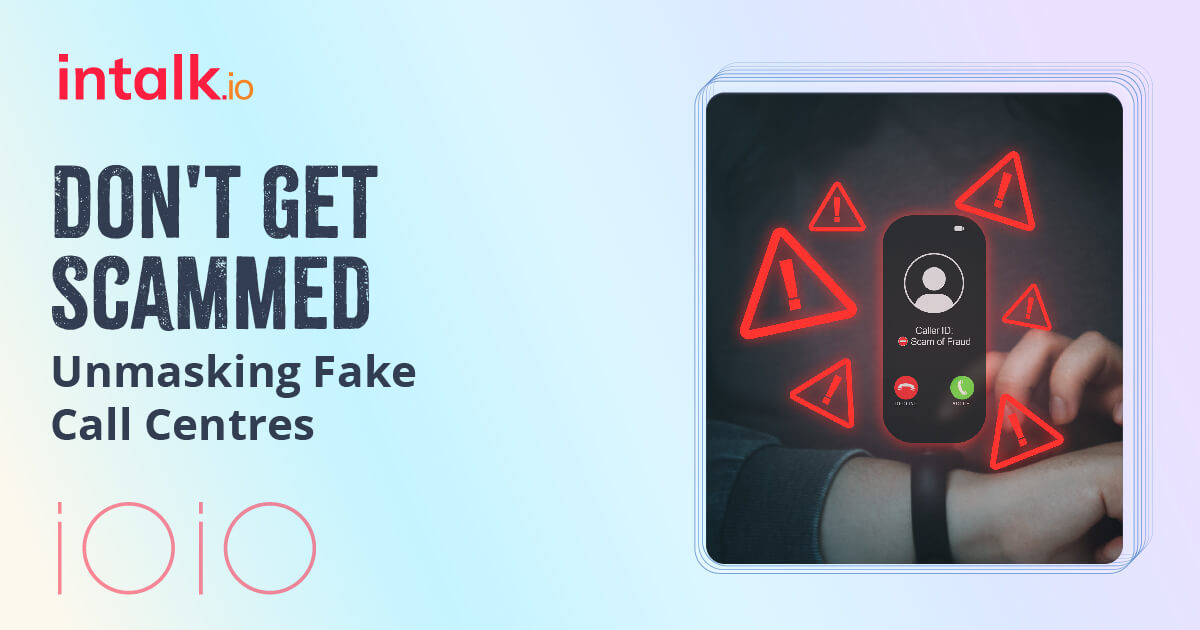In today’s digital age, convenience often comes at a cost. While phone calls offer a seemingly personal touch, they can also be a gateway for scammers operating from fake call centres. These centres aim to trick you into revealing personal information, transferring money, or falling for deceptive offers. Protecting yourself from these scams requires awareness and vigilance.
This comprehensive guide equips you with the knowledge to identify and avoid fake call centres. We’ll delve into the common tactics used by scammers, the red flags to watch out for, and the steps you should take if you suspect you’ve been targeted.
Unveiling the Tactics: How Fake Call Centres Operate
Fake call centres employ a variety of tactics to manipulate and exploit unsuspecting victims. Here are some of the most common ones:
- Impersonation: Scammers often pose as legitimate representatives from well-known companies, government agencies, or even law enforcement. They may use spoofing technology to display a genuine-looking company number on your caller ID.
- Urgency and Fear: Scammers create a sense of urgency or fear by claiming to have detected suspicious activity on your account, a threat of legal action, or an impending loss of service. This tactic pressures you into making quick decisions without proper verification.
- Phishing for Information: The goal is often to extract personal information like passwords, credit card details, or Social Security numbers. Scammers may ask you to “verify” your account information or request remote access to your computer.
- Scare Tactics: Scammers may threaten you with arrest, lawsuits, or a loss of benefits if you don’t comply with their demands. This tactic preys on emotions and can be particularly alarming for vulnerable individuals.
- “Too Good to be True” Offers: The allure of a “once-in-a-lifetime” offer or a significant financial gain is a common bait. Scammers may promise tax refunds, debt relief, or exclusive investment opportunities that sound too good to be legitimate.
Red Flags: Warning Signs of a Fake Call Centre
While scammers are constantly refining their methods, some red flags can help you identify a potentially fake call:
- Unsolicited Calls: Legitimate companies rarely make unsolicited calls demanding personal information or immediate action.
- Suspicious Caller ID: Don’t trust caller ID alone. Scammers can spoof phone numbers to appear legitimate.
- High Pressure Tactics: Be wary of calls that create a sense of urgency or pressure you to act quickly.
- Vague or Generic Greetings: Legitimate companies will usually address you by name. Generic greetings like “sir” or “ma’am” might indicate a scam.
- Poor Grammar and Communication: Scammers may struggle with proper grammar or have a strong accent. Be wary of unprofessional communication.
- Requests for Personal Information or Money Transfers: Never give out personal information or transfer money over the phone unless you’ve initiated the call and verified the company’s legitimacy.
Taking Action: What to Do If You Suspect a Scam
If you suspect a call is from a fake call centre, here’s what to do:
- Don’t Engage: Don’t confirm any personal information or answer questions about your financial situation.
- End the Call Politely: Thank the caller and politely end the conversation. Don’t feel obligated to be polite if the call feels threatening.
- Report the Call: Report the call to the relevant authorities. You can report the number to the Federal Trade Commission (FTC) in the US or your local consumer protection agency.
- Contact the Impersonated Company: If the scammers claimed to be from a legitimate company, contact the company directly using a verified phone number to confirm if the call was legitimate.
- Change Your Passwords: If you suspect you’ve shared personal information or passwords, immediately change your login credentials for any affected accounts.
Protecting Yourself: Building Your Defense
Here are some proactive steps you can take to minimize the risk of falling victim to a fake call centre scam:
- Be Wary of Unsolicited Calls: Don’t answer calls from unknown numbers, especially those with unfamiliar area codes.
- Verify Information: Never give out personal information or make financial transactions over the phone unless you’ve initiated the call and verified the company’s legitimacy. Research contact information through official websites.
- Enable Call Blocking: Many phone providers offer call blocking services. You can also download third-party apps to block suspicious phone numbers.
- Educate Yourself: Stay informed about current scams and tactics used by scammers.





